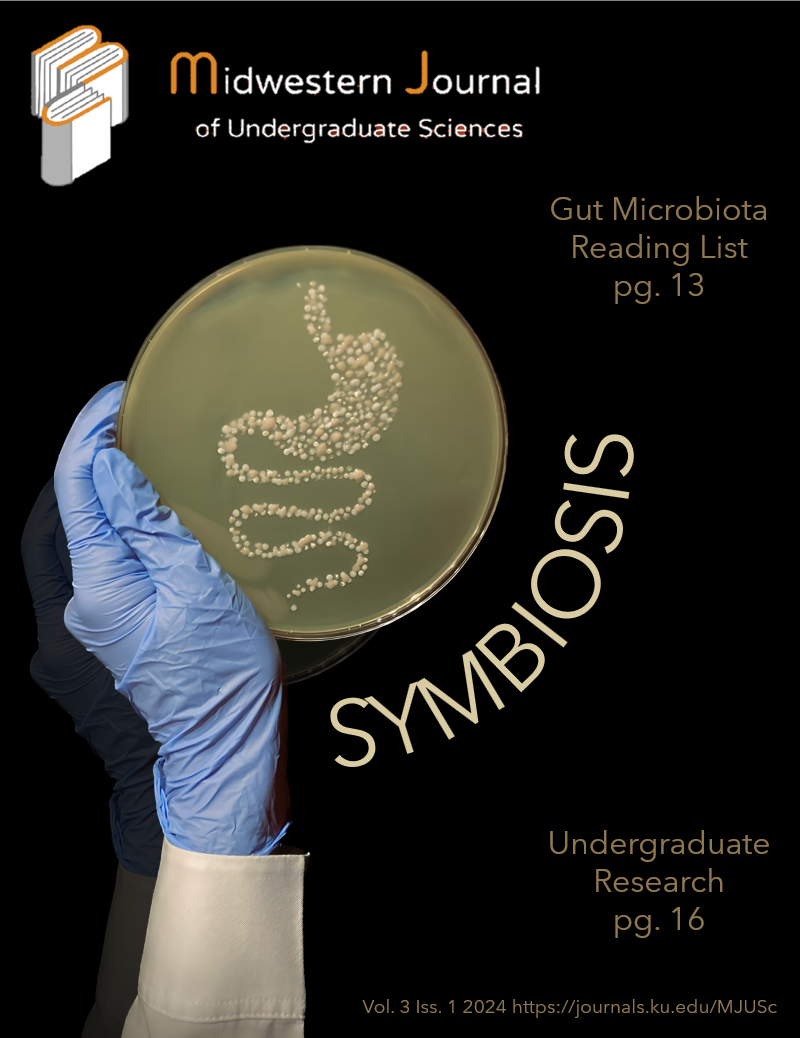A Tale of Three Cytokines
How Gut Bacteria Regulate Immunity
DOI:
https://doi.org/10.17161/mjusc.v3i1.22860Keywords:
cytokine, gut microbiota , immunology, IFN, TLR3, IFN-alphaReferences
Trompette, A. et al. Gut microbiota metabolism of dietary fiber influences allergic airway disease and hematopoiesis. Nat. Med. 20, 159–166 (2014).
Le Chatelier, E. et al. Richness of human gut microbiome correlates with metabolic markers. Nature 500, 541–546 (2013).
Hooper, L. V., Littman, D. R. & Macpherson, A. J. Interactions Between the Microbiota and the Immune System. Science 336, 1268–1273 (2012).
McNab, F., Mayer-Barber, K., Sher, A., Wack, A. & O’Garra, A. Type I interferons in infectious disease. Nat. Rev. Immunol. 15, 87–103 (2015).
Abt, M. C. et al. Commensal Bacteria Calibrate the Activation Threshold of Innate Antiviral Immunity. Immunity 37, 158–170 (2012).
Vasquez Ayala, A. et al. Commensal bacteria promote type I interferon signaling to maintain immune tolerance in mice. J. Exp. Med. 221, e20230063 (2024).
Schaup, et al. Microbiota-Induced Type I Interferons Instruct a Poised Basal State of Dendritic Cells. Cell 181, 1080-1096, (2020).
Chan, V. S.-F. et al. Distinct roles of myeloid and plasmacytoid dendritic cells in systemic lupus erythematosus. Autoimmun. Rev. 11, 890–897 (2012).
Zhang, H. et al. An IL-27-Driven Transcriptional Network Identifies Regulators of IL-10 Expression across T Helper
Downloads
Published
Issue
Section
License
Copyright (c) 2024 Alex Rees, Jack Treml

This work is licensed under a Creative Commons Attribution-NonCommercial 4.0 International License.
© The Author(s)
This work is licensed under a Creative Commons Attribution-NonCommercial 4.0 International license.

